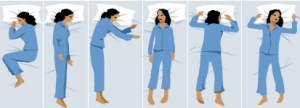Sleeping and Peeing
I get that sleeping and peeing seem a contradiction in terms.
But I also get that sleeping and peeing are two issues that so many people grapple with.
Peeing repeatedly interrupts sleeping for too many, and uninterrupted sleep is more beneficial than most people realize.
If you think of the human body as a rechargeable battery, it is the sleep that is doing the recharging.
Without enough sleep, our batteries will lose power over the course of decades and eventually run out altogether.
Sleeping, and peeing multiple times during the night is a big source of battery depletion.
Before the age of forty, there is no reason we should not be able to sleep through the night. Ideally, we can get anywhere from 6-8 hours, without waking up to pee.
After forty, as the aging process begins to kick in, it is reasonable to wake up once a night a few nights a week.
Reasonable but not necessary.
The painful truth is that many people’s lives are ruled by sleeping and peeing—waking up multiple times a night to empty a bladder that should not need emptying.
And to be honest, you don’t always need to pee when you get up. It is often mixed signals from the brain waking you up.
I have numerous obsessions when it comes to the human body and aging—sleeping and incontinence top the list, with a big nod to walking, and a happy psoas.
When it comes to sleeping I have written numerous times about sleep positions and their effect on the body in terms of pain and injury as well as the quality of sleep.
And now we can add peeing and sleeping to the list.
Cruising around the internet for information on nocturia– the medical term for peeing and sleeping– I couldn’t find a single reference to a connection to sleep positioning as a possible factor.
It is hard for me to make any scientific pronouncements because my findings are all anecdotal. But I have had numerous instances of clients alleviating these problems by changing the sleep positions and/or releasing the psoas.
- If you suffer from sleeping and peeing issues there are other things to try beyond drinking less and taking medication.
- If you are a stomach sleeper, stop immediately.
- If you sleep on your side with one leg hiked up higher than the other it is sort of like sleeping on your stomach so bring your legs together.
Putting direct pressure on your bladder while sleeping can create the need to pee in the middle of the night.
Now consider someone who is dealing with these issues and is also in chronic pain.
We need sleep to heal, but chronic pain prevents us from sleeping.
Add the wrinkle of waking up to pee repeatedly and you can see why some people might not be getting any restful or healing sleep at all.

